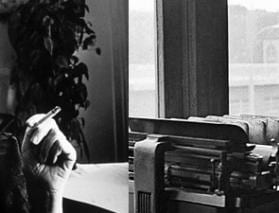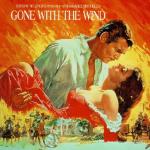The useless people in our society are not the poor or the unemployed. Most economic theories and capitalism in particular have taken great pains to account for those who should be working, but aren’t; and such theories have, in their greatness, adjusted themselves for such variables—taking them into account. No, the useless people in our system are of three types: women, children, and the elderly. These are the people whom terms like “productivity” and “full employment” cannot account for—cannot plan for—and therefore cannot care for. And so the theories move about as if they didn’t exist.
The result, for women and children, has been a sort of “conversion” from useless to something more economically productive. This means that women have left the home and entered the workforce. This is not bad in itself, but wages within our system regulate themselves down to subsistence level fairly quickly. Long story short, this has resulted not in more women “having the option” to go to work, but rather in more women “having no other option but” to go to work. Women entering the workforce because they want to is one thing, entering the workforce because they must is something else.
The children have it a bit worse. Their “conversion” has been from a child to a consumer item, as in daycare. When the mothers were drawn into the economy, the children followed, for a decent market price. But will the price of childcare dictated by the market give us the same quality of product that mothers would? As one writer put it, “there simply isn’t enough money to replace what mothers do.” When we try, by converting children to consumer items, we will undoubtedly end up with an inferior “product”.
After daycare the children proceed directly into public school, where the structure mimics the production line. Each class (mine was the “Class of ‘04”) represents a new batch and date of manufacture, each child being conformed as much to the standard of uniformity as possible.
That is the state of the young, but the state of the old still needs comment. With the failing appreciation for wisdom, in favor of information (for it is easier to understand quantity than quality), we have also seen the failing appreciation for the elderly. This has had two effects: first, it has isolated and neutralized an extremely valuable segment of our society; and second, it has smothered the remaining potential of that segment simply by their isolation, because wisdom cannot thrive in isolation. Therefore, it is certainly not the fault of our elderly if their minds cease to grow, which is the same as to decay, when they reach the age of economic uselessness. In fact, this is the age when the human mind could be reaching its highest potential, but only if it has the opportunity.
These observations are simply three of the many that reveal the greatest poverty of our economic system: that it does not function for the sake of people, but for the sake of production—of things. If the good of the person comes into conflict with the good of production, then the good of the person is the good that is sacrificed. This is why the elderly have moved from care in the home to care in the institution, and have decayed as a group. This is why children have moved from care in the home, also called education, to care in the institution, also called public school, and have decayed as a group.
The reasons are not complicated. Loving relationship is the primary element required to maintain vigor in human beings, whether the human being is near the start of life or near the end of it. And love, being such an intimately human thing, cannot be supplied by any institution, public or private. Only a human family can provide this.
Thus is the fate of the economically useless individuals, in a social structure in which “productivity” gains the status of an end in itself rather than a means to an end, that end being mankind.

















